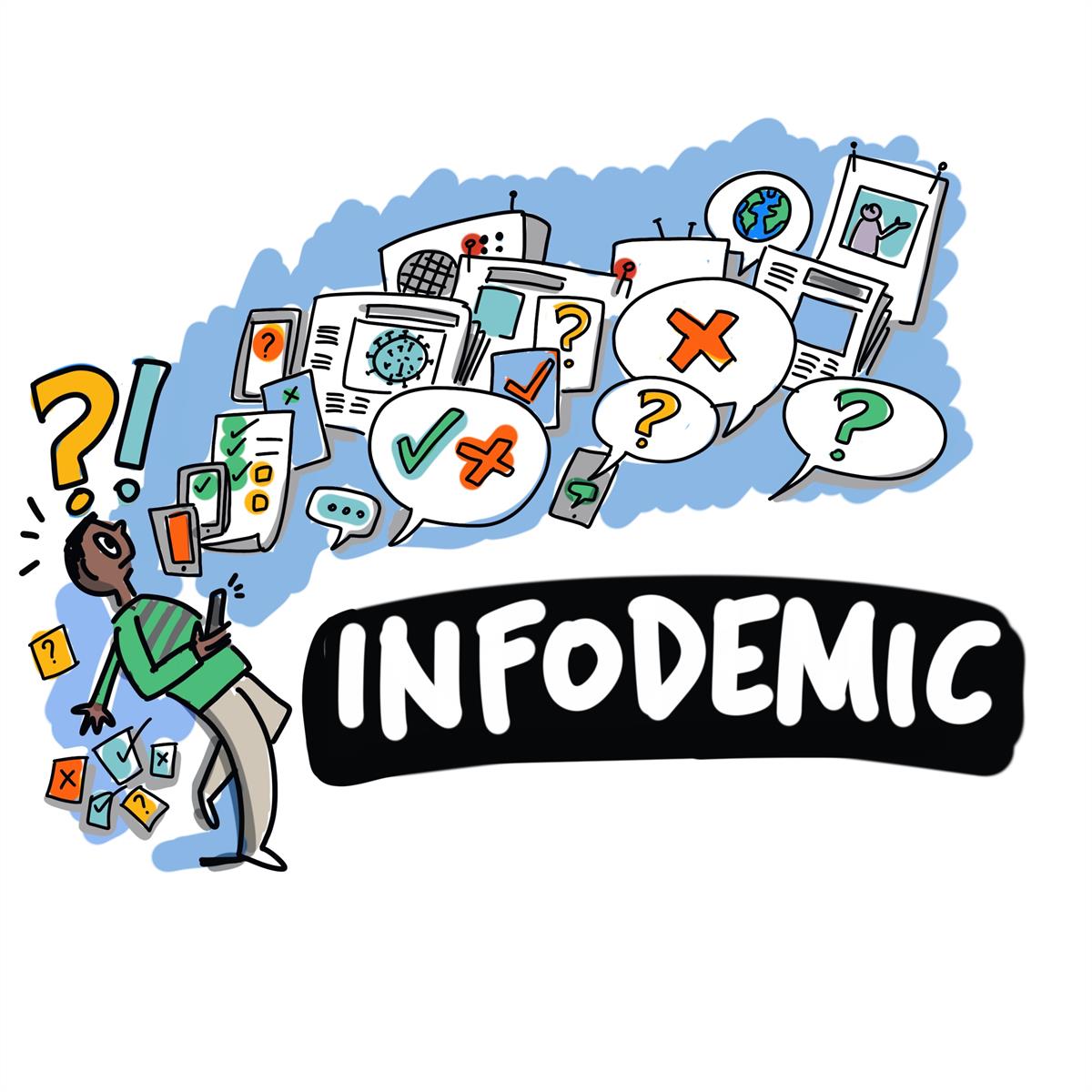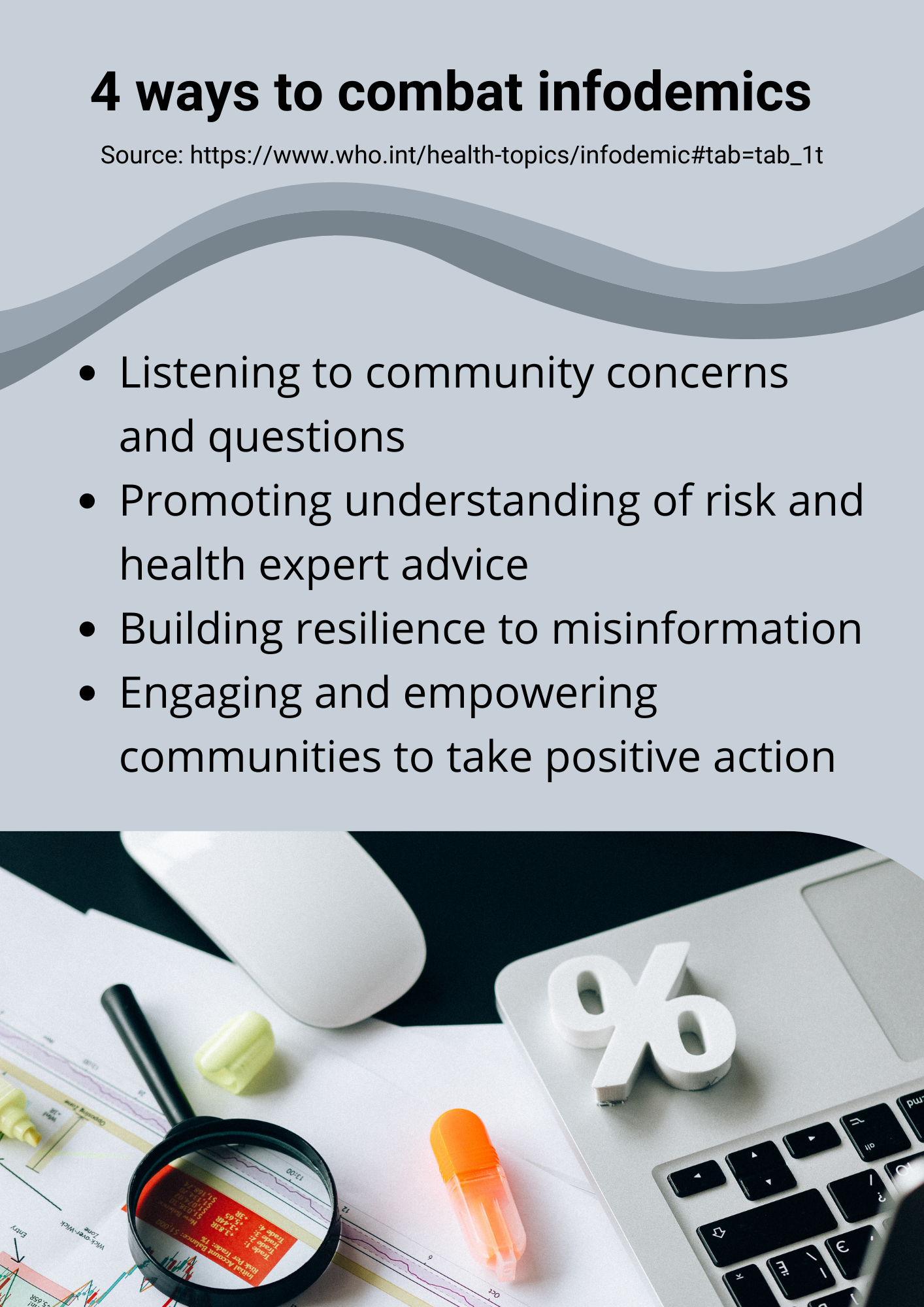WHO Online Webinar: Infodemics and the Impact of Storytelling
페이지 정보
작성자 최지우기자 작성일22-07-30 18:01 댓글0건본문

[HYP Global = Reporter JiWoo Choi] ‘Infodemic’ is a term that amalgamates two different words: information and epidemic. Infodemic refers to the spread of misinformation and disinformation that are highly contagious among people. The information proliferates through public media, informal messengers, and social media. Due to its uncontrollable speed, disabusing incorrect information is a challenging task.
Infodemics create distrust and confusion among people and exacerbate emergency responses during disease outbreaks. In addition, it undermines the communication networks between public health professionals and citizens. This implies that the narratives of infodemics are powerful in attracting people’s attention and evoking empathy.
In the online webinar “Infodemic Management Community Event: The science of Storytelling,” on July 29, 2022, hosted by the World Health Organization, the panelists discussed the potent nature of storytelling and its double-edged sword during pandemics. Claire Wardle, a professor of Practice at the Brown University of Public Health, pointed out that people are drawn to conspiracies because they tend to look for simple explanations in complex situations. Through conspiracies, people try to give themselves some explanations to make sense of the world. She further explained that facts sometimes resonate less with people due to their vast amount and intractable jargon. On the other hand, a short personal message written in a first-person perspective on social media seems more trustworthy and relatable to others.
However, stories can derive positive effects when applied appropriately. Maryam Zaringhalam, a senior producer in the Story Collider, underscored persuasiveness and openness as the virtues of storytelling. Claire further explained how personal stories are sometimes more potent than enumerated facts. For example, sharing a story of a person infected by Covid-19 would be more effective in alerting people about the disease than explaining verbose facts about Covid-19 symptoms and treatment. The narratives and empirical stories often generate stronger connections with people.
Regarding the possible solutions to infodemics, WHO has presented four different ways to alleviate infodemics:

Covid-19 has shown how information about vaccines and viruses can be rapidly absorbed by people worldwide. Though it is impossible to fully change the emotional and susceptible human nature against external influences, it is essential to critically evaluate the information we view in the media and acknowledge the propensity of the narratives.
Reported by JiWoo Choi, University of Rochester, jchoi93@u.rochester.edu
WHO 온라인 웨비나: 정보유행(인포데믹)과 스토리텔링의 영향
[HYP 국제=최지우 기자] '인포데믹(Infodemic)'은 정보(information)와 유행병(epidemic)이라는 두 용어를 합친 합성어이다. 인포데믹은 사람들 사이에 전염성이 강한 잘못된 정보가 빠르게 확산되는 현상을 말한다. 정보는 공공 매체나 메신저 및 소셜 미디어를 통해 확산된다. 정보 확산의 제어 불가능한 속도 때문에 이미 퍼진 잘못된 정보를 바로잡는 것은 어려운 일이다.
인포데믹은 사람들 사이에 불신과 혼란을 일으키고 질병 발생 시 긴급 대응능력을 악화시킨다. 게다가, 공중 보건 전문가들과 시민들 사이의 의사소통 네트워크를 약화시킨다. 이는 인포데믹의 서사 및 잘못된 정보의 내용이 사람들의 관심을 끌고 공감을 불러일으키는 데 강력하다는 것을 암시한다.
2022년 7월 29일, 세계 보건 기구가 개최한 온라인 웨비나 "인포데믹 매니지먼트 커뮤니티 이벤트: 스토리텔링의 과학적 능력," 에서 패널들은 스토리텔링의 강한 잠재력과 전염병 발생시 양날의 검이 될 수 있는 특징들에 대해 논의했다. 브라운대학교 공중보건학과 클레어 워들(Claire Wardle) 교수는, 인간은 복잡한 상황에서 그 상황을 이해시켜 줄 수 있는 간단한 설명 및 이유를 찾는 경향이 있기 때문에 잘못된 정보라 할지라도 음모에 끌린다고 지적했다. 음모를 신뢰함으로서, 사람들은 스스로 세상을 이해할 수 있게 하는 설명들을 찾게 된다. 그녀는 또한, 과학적 사실들은 방대한 정보의 양과 다루기 어려운 전문 용어들 때문에 때때로 사람들의 공감을 불러일으키기 어렵다고 설명했다. 반면에, 소셜 미디어에 1인칭 시점으로 쓰여진 누군가의 경험이 담긴 짧은 메시지는 다른 사람들에게 더 신뢰성을 주고 공감을 이끌어 낼 수 있다.
그러나, 이야기는 적절히 활용되면 긍정적인 효과를 얻을 수 있다. Story Collider의 수석 프로듀서인 메리엄 자링할람(Maryam Zaringhalam)은 설득력과 개방성을 스토리텔링의 장점으로 강조했다. 클레어 워들(Claire Wardle) 교수는 한 개인의 이야기가 열거된 사실보다 더 강력한 힘을 가지는 경우도 있다고 설명했다. 예를 들어, 코로나19에 감염된 사람의 이야기를 공유하는 것은 코로나19 증상과 치료에 대한 자세한 과학적 사실을 설명하는 것보다 사람들의 신뢰성과 경각심을 높이는 데 더 효과적일 것이다. 경험에 근거한 이야기가 가지고 있는 서술은 종종 사람들 사이에 더 강한 연결고리를 만들어 낸다.
인포데믹의 해결책과 관련하여 WHO는 정보 전염병을 완화하기 위한 네 가지 방법을 제시했다:
1. 지역사회의 문제와 질문에 귀 기울이기
2. 위험상황에 대한 이해와 보건 전문가 자문에 대한 이해 증진
3. 잘못된 정보에 대한 대처능력 강화
4. 지역사회가 선한 영향력을 미칠 수 있도록 참여 및 권한 장려
코로나19는 백신과 바이러스에 대한 정보가 전 세계 사람들에게 얼마나 빠르게 흡수될 수 있는지 보여주었다. 외부 영향에 감정적이고 민감한 인간의 본성을 완전히 바꾸는 것은 불가능하지만, 우리가 미디어에서 습득하는 정보를 비판적으로 평가하고 이야기가 가진 서술의 경향을 인정하는 것이 인포데믹에 대응하는 첫걸음이 될 것이다.
최지우 기자, 로체스터 대학교, jchoi93@u.rochester.edu
댓글목록
등록된 댓글이 없습니다.







